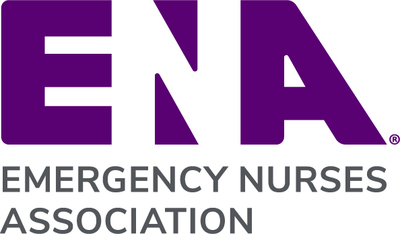Researchers define state of emergency nursing readiness for the care of geriatric patients
Researchers define state of emergency nursing readiness for the care of geriatric patients
SCHAUMBURG, Ill., May 6, 2019 /PRNewswire/ -- New research from the Emergency Nurses Association and the Geriatric Emergency Department Collaborative explores emergency nurses' perceptions on their ability to care for geriatric patients in an emergency department. The study, scheduled to be published in an upcoming issue of the Journal of Emergency Nursing, found that there are significant deficits in geriatric emergency care in the United States.

The Center for Disease Control and Prevention reports that 15.6 percent of ED visits in 2015 were by patients who were 65 years and older – a population expected to grow by 112 percent over the next 40 years. Emergency Nurses’ Perception of Geriatric Readiness in the ED Setting: A Mixed-Methods Study was the result of a General Assembly resolution to describe the current state of emergency nursing readiness for the care of an increasing patient population.
A total of 1,610 emergency nurses completed a quantitative survey and another 23 participated in qualitative focus groups to identify deficits in education, screenings, accommodations and communications with outside agencies, as well as inconsistent use of early screening for frailty and a lack of resources to intervene appropriately.
"Treating geriatric patients in the emergency department can be a challenge due to their unique health needs," said ENA President Patricia Kunz Howard, PhD, RN, CEN, CPEN, TCRN, NE-BC, FAEN, FAAN. "This study brings those challenges to light and gives health care providers an opportunity to identify their weaknesses and start turning them into strengths in the name of improved patient care."
Because older adults often present atypically with vague descriptions to their medical and psychosocial issues, managing these patients takes collaboration from medicine, nursing, social work and case management. Emergency nurses play the important role of initial identification and have the opportunity to improve care for older adults by advocating for geriatric specific interventions.
A significant barrier discussed by study participants was the level of training an emergency nurse might have. They reported that newer nurses without certified nurse assistant training had lower comfort levels with older patients.
"Emergency nursing managers, directors and staff nurses can use the findings from this study to demonstrate the gaps between the guidelines and the current state of their EDs, and obtain the resources they need to care for this growing population," said lead researcher and Director of ENA's Institute for Emergency Nursing Research Lisa Wolf, PhD, RN, CEN, FAEN.
The Journal of Emergency Nursing is the profession's peer-reviewed research publication dedicated to researching practice and professional issues.
For more information on ENA's resources for geriatric care, please visit the geriatric practice resource library.
About the Emergency Nurses Association
The Emergency Nurses Association is the premier professional nursing association dedicated to defining the future of emergency nursing through advocacy, education, research, innovation, and leadership. Founded in 1970, ENA has proven to be an indispensable resource to the global emergency nursing community. With more than 43,000 members worldwide, ENA advocates for patient safety, develops industry-leading practice standards and guidelines, and guides emergency healthcare public policy. ENA members have expertise in triage, patient care, disaster preparedness, and all aspects of emergency care. Additional information is available at www.ena.org.
ENA Media Contact:
Dan Campana
Senior Manager, PR & Communications
847-460-4017
dan.campana@ena.org
![]() View original content to download multimedia:http://www.prnewswire.com/news-releases/ena-study-emergency-departments-must-better-prepare-for-medical-needs-of-geriatric-patients-300844314.html
View original content to download multimedia:http://www.prnewswire.com/news-releases/ena-study-emergency-departments-must-better-prepare-for-medical-needs-of-geriatric-patients-300844314.html
SOURCE Emergency Nurses Association




